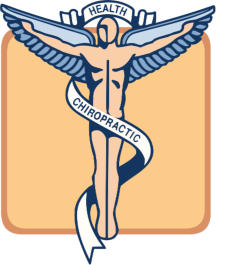

I

Neurofeedback
Neurofeedback
What is Neurofeedback?
While Neurofeedback is starting to become more prevalent, this is not a new therapy and has been used for more than 50 years. This state of the art, non-invasive, drugless method helps to create balance in the brain and promotes healthy brain activity. Our program detects how four of the brain waves are active during different activities in order to determine if they are functioning appropriately. If a dysfunction is detected, then we create a program to train to your brain and correct the wave patterns. Neurofeedback is direct training of brain function, by which the brain learns to function more efficiently. We observe the brain waves in action to determine which waves need correction. The patient then continues with their tailored treatment plan consisting of a series of videos, games, and sounds. This trains the brain waves to change their own activity to more appropriate functional patterns. This is a gradual learning process. Neurofeedback is training in self-regulation which is a necessary part of good brain function. Self-regulation training allows the system (the central nervous system) to function better. Neurofeedback addresses problems of brain dysregulation. They include the Anxiety - Depression Spectrum, Attention Deficits, Behavior Disorders, Various Sleep Disorders, Headaches and Migraines, Stroke, Memory Loss,Fibromyalgia, PMS and Emotional Disturbances.
Neurofeedback Can Be Used To Improve:
The goal of Neurofeedback is to improve the brains
ability to self-regulate, maintain flexibility, and
smoothly shift between states of relaxation and
arousal. This makes Neurofeedback effective in
treating:
• ADD/ADHD
• Anxiety/Depression
• Concussion
• Fibromyalgia/Chronic Fatigue
• Headache/Migraine
• Insomnia/Sleep Disorders
• Memory Loss
• Stroke
This can also be used to help athletes perform
at their very best by improving:
• Depth and quality of sleep for greater physical
and mental stamina
• Mental focus and clarity
• Concentration
• Adaptability and mental cognition
• Rate of mental processing
• Memory
The Process:
We start through creating a specific Brain Map.
These Brain Maps are created through an assessment process that allows us to
determine the brain wave patterns by gathering information about the electrical activity
of specific locations of the brain.
We gather this information by placing what looks like a swim cap with a number of
sensors on your head to measure the brain wave activity of the four types listed below.
This is done with the patient sitting quietly with their eyes closed for approximately 5
minutes and then with eyes open for an additional 5 minutes. Our equipment will then
analyze this information and generate a series of images that will identify which areas of
the brain may be too active or not active enough.
This then creates the Brain Map. The Brain Map provides an invaluable overview of what
is going on in the brain and will be used in conjunction with information provided by the
client to develop the training plan to correct the imbalance found in the brain wave
patterns.
Types of Brain Waves To Be Examined.
•Beta• Concentration, Arousal, Alertness, Cognition.
Higher levels associated with Anxiety, Disease, Feelings of Separation, Fight or Flight.
•Alpha• Relaxation, Super Learning, Relaxed Focus, Light Trance, Increased Seratonin Production.
Pre-Sleep, Pre-Waking Drowsiness, Meditation, Beginning of Access to Unconscious Mind.
•Theta• Dreaming Sleep (REM), Increased Production of Catecholamines (vital for learning and memory), Increased Creativity.
Integrative, Emotional Experiences, Potential Change in Behavior, Increased Retention of Learned Material, Deep Meditation, Access to Unconscious Mind.
•Delta• Dreamless Sleep, Human Growth Hormones Released
Deep Trance Like, Non-Physical State, Loss of Body Awareness, Access to Unconscious and “Collective Unconscious Mind”








Interventional Pain Management 4235 Maray Drive,
Rockford, IL 61107 815-397-8500
What is Neurofeedback?
While Neurofeedback is starting to become more prevalent, this is not a new therapy and has been used for more than 50 years. This state of the art, non-invasive, drugless method helps to create balance in the brain and promotes healthy brain activity. Our program detects how four of the brain waves are active during different activities in order to determine if they are functioning appropriately. If a dysfunction is detected, then we create a program to train to your brain and correct the wave patterns. Neurofeedback is direct training of brain function, by which the brain learns to function more efficiently. We observe the brain waves in action to determine which waves need correction. The patient then continues with their tailored treatment plan consisting of a series of videos, games, and sounds. This trains the brain waves to change their own activity to more appropriate functional patterns. This is a gradual learning process. Neurofeedback is training in self-regulation which is a necessary part of good brain function. Self-regulation training allows the system (the central nervous system) to function better. Neurofeedback addresses problems of brain dysregulation. They include the Anxiety - Depression Spectrum, Attention Deficits, Behavior Disorders, Various Sleep Disorders, Headaches and Migraines, Stroke, Memory Loss,Fibromyalgia, PMS and Emotional Disturbances.
Dr. Andrew Kong & Associates
4235 Maray Drive, Rockford, IL 61107 815-397-8500



- Home
- booking an appointment
- doctors
- services
- acupuncture
- Acupuncture-a
- chiropractic manipulation
- ilima natural beauty products
- comprehensive laboratory
- functional medicine
- neurofeedback
- nutrition & supplements
- pediatrics
- physical & rehabilitation therapies
- smoking cessation
- ailments
- acne solution
- add&adhd
- adrenal fatigue
- anxiety & depression
- asthma allergies
- autoimmune
- crohns
- hashimotos
- lupus
- rheumatoid arthritis
- cancer support
- chronic pain
- concussion & traumatic brain injury
- diabetes
- erectile dysfunction
- fibromyalgia chronic fatigue
- infertility
- insomnia
- integrative cardio
- leaky gut
- low testosterone
- memory loss
- mens health
- migraine
- sciatica
- sleep disorders
- stroke
- thyroid
- weight loss
- womens health
- Contact



















